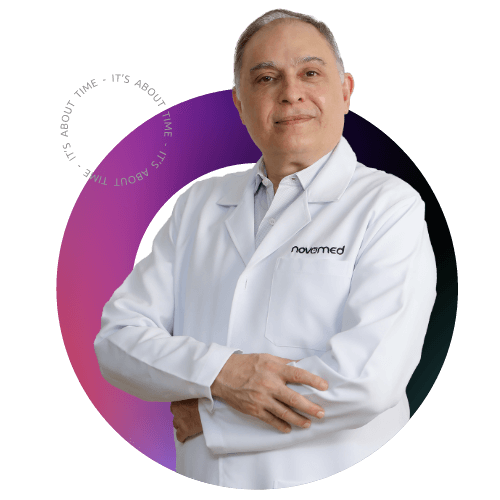Overview
Adult acquired flatfoot deformity (AAFD) refers to a group of malformations that affect the foot and ankle. The arch of the foot collapses in patients with this condition, causing pain and loss of function. Flatfoot pain can usually be managed with braces or orthotics and other non-surgical treatments.
Flatfoot in children usually goes away on its own, even without treatment. Flat feet in adults, which at one point in time had a normal longitudinal arch, remain flat in most cases, and the treatment aims to manage the symptoms rather than treat the condition.
What are the symptoms of AAFD?
Adult acquired flatfoot symptoms differ depending on the cause of the condition. Deformity of the foot and ankle may arise as the tendon degrades over time. Flatfoot can cause ankle pain and swelling while walking or running because the collapsing arch puts additional strain on the ankle bone. Adult acquired flatfoot can also cause bony lumps on the top or inside the foot. Diabetic people who suffer from AAFD may experience a bulge on the bottom of the foot but not feel pain since their sensibility is impaired.
What are the common symptoms of AAFD?
Common AAFD symptoms include pain while walking or standing, swelling around the ankle, and bony bumps on the top and inside of the foot.
What are the causes of AAFD?
There are various potential causes of AAFD, including:
- Posterior tibial tendon dysfunction: The function of the posterior tibial tendon is to hold up the arch and support your foot while walking. If this tendon is torn or becomes overworked, the arch will collapse.
- Arthritis: AAFD can be caused by rheumatoid arthritis, which affects the ligaments that support the foot and the cartilage in the joints, causing the foot to change shape and become flat.
- Injury: The ligaments in the foot can be torn or injured, causing the joints to become misaligned and the foot to become flat in the middle and sometimes in the back.
- Charcot Foot: People with diabetes can suffer from a condition called Charcot Foot that may cause the foot to deform. Diabetic people lack normal foot sensation and are unable to experience pain as the arch collapses.
How is AAFD diagnosed?
During your consultation, our orthopedic doctor will review your medical history, ask you about your symptoms and examine the location of the discomfort, the shape of your foot, and how well you can move your foot and walk.
Our doctor will also take X-rays of your foot and ankle to check the alignment of your bones. Based on the cause and severity of your AAFD, they will devise a treatment plan for your condition.
How is AAFD treated?
Treatment is determined by your symptoms and the severity of your condition.
Some people improve without surgery and have the option of wearing an ankle brace to help relieve tendon stress and pain or a walking boot that supports and heals the tendon. It is also helpful for AAFP patients to avoid high-impact activities, take anti-inflammatory medication, and do physical therapy.
If your AAFD symptoms are severe, you may need to have surgery.
Surgical treatments that can effectively relieve pain include:
- Flatfoot reconstruction: This procedure involves cutting and repositioning the heel bone into a more neutral position to strengthen the posterior tibial tendon, as well as lengthening the calf muscle.
- Joint fusion: This procedure involves fusing the joints in the back foot together and realigning the foot to give it a more natural form.
What to expect after AAFD treatment?
Any of the surgical procedures require at least 6 weeks of limited weight-bearing. The time it takes for AAFD patients to recover after treatment varies greatly depending on the treatment. After the procedure, patients need 4 to 6 months to recover and 12 to 18 months to achieve optimal improvement.
Schedule your appointment at Novomed today
If you are experiencing any AAFD symptoms, make an appointment with one of our highly qualified orthopedic specialists in Dubai or Al Ain to learn more about your condition and treatment options.
Book your consultation today by calling toll-free 8006686, filling out the booking form, or clicking the live chat icon at the bottom of the screen.



























